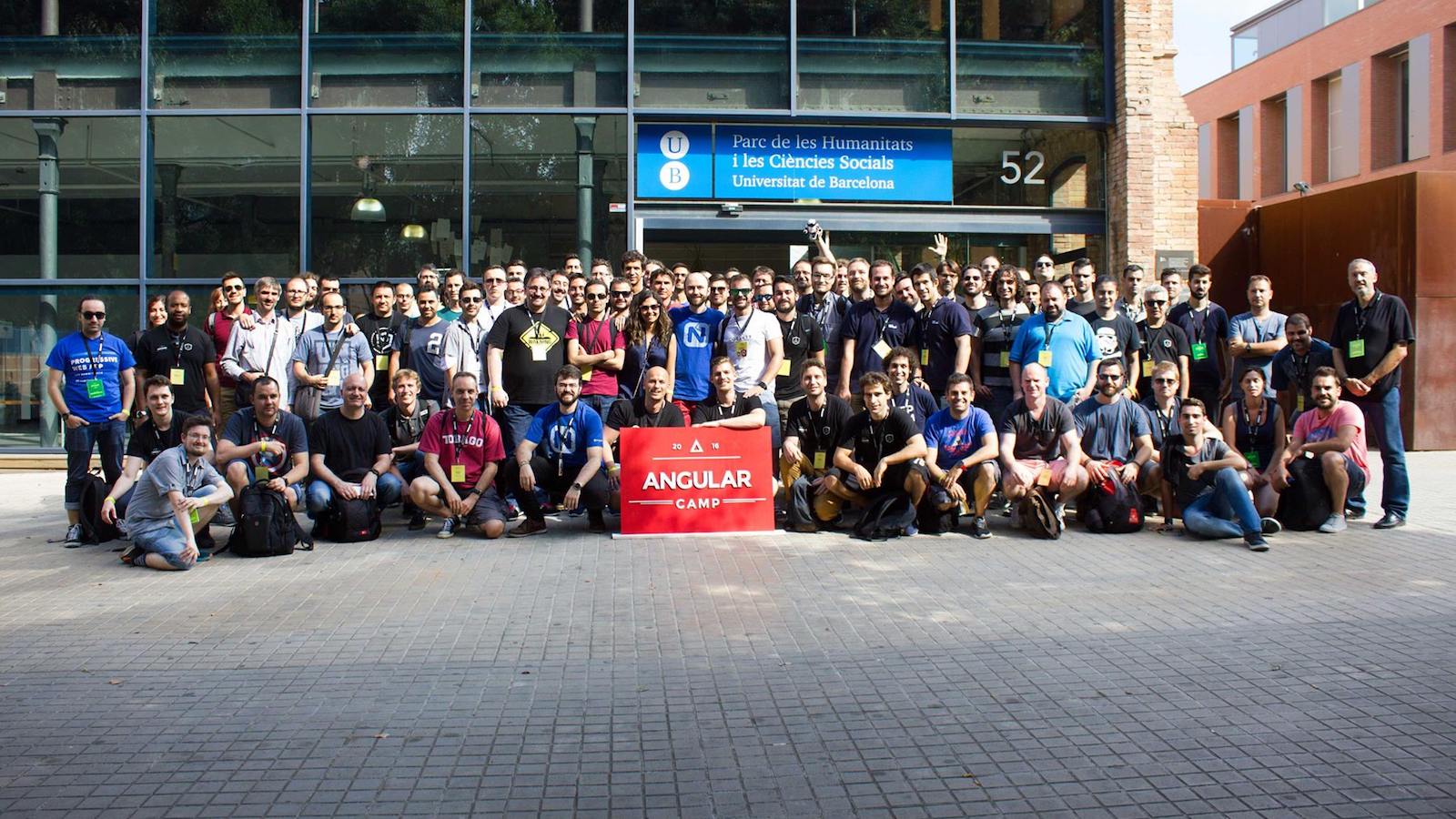January 2017
AngularBeers started in 2015 by a passionate and driven developer, David Pich. He realized that people need a space to talk and share their experiences and ideas. He wanted to be there to help overcome their fears and bring them together. The community has been growing ever since and now has over 2,000 members.

One of the qualities that stands out about you is your passion for what you do. What drives you?
I want to create something that will help people in my city. I believe that technology exists to help people. The most important thing are the people, not just presentations.
We need to help people to start thinking about what we can do with the newest web technologies, and our freedom to start doing things without waiting for someone to tell us what do. Right now a developer has the power to act and change the world. You don’t need to work in a company – maybe you can create your own!
Providing useful and meaningful thinking strategies to people about how to make all of this sustainable is what drives me. We should follow the ”people first” approach when a project is launched to see if it really provides something useful for them. For example, I used to work in companies, but it didn’t last long because I wasn't feeling passionate about what I was doing. When I quit my last job, I wanted to take action. I wanted to create something that could be useful for others as well. I started to talk to people and it became clear that what we needed was a space – and that is how AngularBeers was born.
It’s a place where people can interact, talk, learn, and share ideas and experiences without fear, but with passion in an open and inclusive atmosphere.
There was no community, so you just created one?
When you start a community you need to make sure that you can really provide something new to your people if there’s already an existing community. You have to take action to make things happen, or you will lose the momentum.
Don’t wait for others to take action for you, or expect rewards. I started covering all expenses myself. I have my ups and downs, but when someone tells me how useful what I do is for them, I tell myself, “You can’t stop now, David!”
It’s not all about doing talks, having a venue, or providing pizzas. You need to bring your energy and be in regular touch with your members. Collect feedback, and always be humble to understand that maybe there is something you need to change at some point in order to improve your community and make it a better place for everybody.
And how did AngularCamp start?
It all started when I suggested to Johannes, who is the organizer of Angular Munich, that we should talk about how we could do things together in Munich and Barcelona. Then we met at AngularConnect in London, and the first AngularCamp happened in January 2016.
We have a clear mission and vision about AngularCamp goals. We want to democratize tech events with more affordable prices and create a space where we, the web/mobile developer community, can get together and enjoy some days doing what we love. To show what we’re working on, learn from others, meet with the fellows with whom we talk to virtually. Also be offline for a while and enjoy the experience!
Our members are the main players in everything that is happening during the event. You don’t need to be a superhero to get engaged, and everyone is welcome, from beginners to experts, to join us.
The second AngularCamp was held in July 2016. We had 220 attendees from 18 different countries. We had a great team of organizers and did everything on our own. For example, you could see that our name tags were kind of original. It was really exciting!
Isn’t it hard to find sponsors, or to find a way to hold big events? What are your tips?
It’s hard to think about how you can make an event happen without having sponsors, and to create value from nothing. First you need to decide on what value you can bring to your members, but also companies who want to get involved.
We don’t like to call them sponsors as we have supporters who really believe in our vision. So, when we ask for support, we talk to them and see if our philosophy matches theirs and if a collaboration is possible. Not everything is about money and there are different things supporters can provide us with: talent (speakers/mentors), resources, help with the event, etc.
You need to always concentrate on important things regardless of whether or not you get any help from sponsors. It’s important to have an overall strategy and take action.
As we didn’t have any company supporting us and AngularCamp was getting bigger, we had to find a good partner who could help us as an entity. We’re honored to partner up with the University of Barcelona. And thanks to that collaboration, we could have a great venue for our event.
What’s the next step for you?
I founded my first company HackCoLab in order to keep doing events, meetups, workshops, and offer lectures. It was founded to fulfill real needs of the community. Its first project is to have our own space in Barcelona – bringing a community hub to our city where all citizens can join us and also bring technology close to them.
We have an ambitious goal this year for Angular Community. We want to expand AngularCamp to other countries with a new community program we’re working on right now. We have created a meetup pro community of Angular where we want to welcome everyone who believes in us and wants to get involved in our mission. It’s all about the people!
Now we have a team that enables us to organize everything around AngularCamp. We’re able to move the event to another level, and also have the right tools to manage it. It’s possible to have a big impact with less resources if you have a passion for what you do.
We will start a monthly “CinemaJS” event as well. It is going to be held in a cinema for up to 300 attendees. We want to talk about anything related to JavaScript. I believe in the power of a community as an engine to change the world, but also in taking action locally in each city first. It’s the place where people can continuously learn and get in touch with others, and also where you can bring people together for various events.

